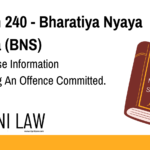The Supreme Court of India has emphasized the necessity of a proper mechanism under the Drugs and Magic Remedies (Objectionable Advertisements) Act, 1954 to enable citizens to file complaints against misleading medical advertisements. A bench of Justices Abhay S Oka and Ujjal Bhuyan directed Senior Advocate Shadan Farasat, acting as Amicus Curiae, to submit a note on the Act’s implementation before the next hearing on March 7.
The Court underlined that the Act requires a proper enforcement system, including grievance redressal mechanisms such as dedicated complaint helplines. Justice Oka stressed that strict prosecution must follow violations, as the Act holds vital public importance.
States’ Compliance with Previous Orders
The hearing also reviewed the compliance of states and union territories (UTs) with past Supreme Court directives regarding misleading medical ads. Earlier, the Court had ordered states/UTs to submit affidavits detailing actions taken since 2018 under the Drugs and Magic Remedies Act, the Drugs and Cosmetics Act, and the Consumer Protection Act.
Jharkhand: The state claimed no manufacturer applied for Rule 170 permissions, but the Court demanded clarification on whether any misleading ads were being published in the state. A better affidavit was ordered.
Karnataka: The state failed to prosecute 25 cases due to lack of details such as license numbers. The Court dismissed these as excuses and directed authorities to use their police and cyber cells to identify offenders.
Kerala: The Court found no need for additional directions, as the state was effectively implementing Rule 170.
Punjab & Madhya Pradesh: Their affidavits were recently submitted, and the Court will review them at the next hearing.
Pondicherry: Initially issued a non-compliance notice, the UT was later granted more time after its counsel appeared in court.
Andhra Pradesh: The Chief Secretary was summoned for failing to file compliance reports. Despite requests for leniency, the Court refused, stating that the state showed no sense of responsibility in meeting deadlines.
Next Steps
Comprehensive directions are expected on March 7. The Supreme Court is set to ensure stricter enforcement of the Drugs and Magic Remedies Act. States and UTs will need to prove compliance or face serious legal consequences.











